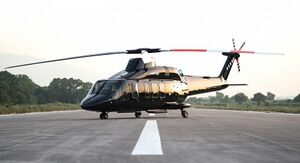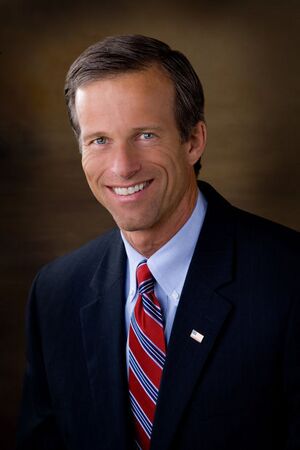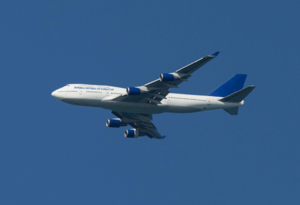President of Zamastan: Difference between revisions
| Line 154: | Line 154: | ||
|26 years, 7 days | |26 years, 7 days | ||
|- | |- | ||
|style="background: | |style="background:purple; color:white;"|Acting | ||
|[[File:JamesEbbersonPortrait.jpg|60px]] | |[[File:JamesEbbersonPortrait.jpg|60px]] | ||
|'''[[James Ebberson]]'''<br>{{small|(1972)}} | |'''[[James Ebberson]]'''<br>{{small|(1972)}} | ||
|{{small|24 September}}<br>1972 | |{{small|24 September}}<br>1972 | ||
|{{small|31 September}}<br>1972 | |{{small|31 September}}<br>1972 | ||
| | |7 days | ||
|- | |- | ||
|style="background:brown; color:white;"|12 | |style="background:brown; color:white;"|12 | ||
Revision as of 20:35, 18 June 2020
| President of Zamastan | |
|---|---|
 Flag of Zamastan | |
| Style | Mister/Madam President |
| Status | Head of state Head of government |
| Residence | Zian Presidential Mansion |
| Seat | Tofino |
| Nominator | Political parties or self-nominations |
| Appointer | Popular vote |
| Term length | 2 years Unlimited election candidacy |
| Constituting instrument | Constitution of Zamastan |
| Formation | September 22nd, 1804 |
| First holder | Tomias Hapson |
The President of Zamastan is the executive head of state of The Imperial Republic of Zamastan. The President is elected by Zamastanian citizens every election cycle for a two-year term, which they can renew and unlimited number of times if they are elected to that position. The President serves as the head of state, commander of the Zamastanian Armed Forces, and have power to delay bills and to speed their passage into legal legislation, assuming that a bill has passed the Congress Chamber by a 2/3 majority. Another important role of the President is to be Zamastan's chief representative and to decide Zamastan's vote in international groups such as the World Assembly. The President is able to assume more decision-making power in one of several strictly defined times of emergency.
In recent years, there have been three consecutive Presidents who have been elected in Special Elections. This occurs when a President is removed from power, either by death, resignation, or votes of no-confidence - all examples of which have occurred in the past 5 years. The 19th and current President is Foley Sakzi, who was elected in a Special Election in November 2019 to replace Anya Bishop, who was removed after a Vote of No-Confidence. Bishop was elected in 2019 in an emergency election due to the resignation of Zacharias Castovia. Castovia was also elected in a special election in 2015, following the passing of his father, President Cassious Castovia. He assumed the Presidency on January 1st, 2016.
As of the passing of former President Elene Abotsford on December 1st, 2018, and Aiden Avery on February 12th, 2019, there are now four living Presidents, one being the current (Foley Sakzi) and the others being former Presidents Anya Bishop, Zacharias Castovia and Quinn Werner.
Origin
Following the Zamastan War of Independence, representatives from all the allied rebel factions decided to combine their self-governed groups under one government, to be headed by several elected individuals overseen by a democratically chosen head, desiring to avoid anything that remotely resembled a monarchy. Tomias Hapson, known for his inspiring leadership during the war, was the principle choice. Thus, the framing of the Constitution of Zamastan began to be formed by the congress, and Hapson was chosen as the President of Zamastan.
List of Presidents
|
President of Zamastan | |||||
| Key |
| ||||
| No. | Portrait | Name (Years in office) |
Term of office | Total time in office | |
| 1 | 
|
Tomias Hapson (1804-1844) |
27 October 1804 |
27 October 1844 |
40 years |
| 2 | 
|
Avi Taures (1844-1868) |
1 November 1844 |
17 May 1868 |
23 years, 6 months, 16 days |
| 3 | 
|
William Castovia (1868-1906) |
17 May 1868 |
22 September 1906 |
38 years, 4 months, 21 days |
| 4 | 
|
Thomas Dubois (1906-1908) |
22 September 1906 |
22 September 1908 |
2 years |
| 5 | 
|
Jean Levasseur (1908-1912) |
22 September 1908 |
22 September 1912 |
4 years |
| 6 | 
|
Bret Mathis (1912-1914) |
22 September 1912 |
22 September 1914 |
2 years |
| 7 | 
|
Freddie Sutton (1914-1918) |
22 September 1914 |
22 September 1918 |
4 years |
| 8 | 
|
Hawk Gardner (1918-1924) |
22 September 1918 |
22 September 1924 |
6 years |
| 9 | 
|
Elias Blanco (1924-1936) |
22 September 1924 |
22 September 1936 |
12 years |
| 10 | 
|
Tyler Kordia (1936-1946) |
22 September 1936 |
22 September 1946 |
10 years |
| 11 | 
|
Marvin Gaviria (1946-1972) |
22 September 1946 |
29 September 1972 |
26 years, 7 days |
| Acting | 
|
James Ebberson (1972) |
24 September 1972 |
31 September 1972 |
7 days |
| 12 | 
|
Elene Abotsford (1972-1976) |
31 September 1972 |
22 September 1976 |
3 years, 11 months, 24 days |
| 13 | 
|
Quinn Werner (1976-1980) |
22 September 1976 |
22 September 1980 |
4 years |
| 14 | 
|
Aiden Avery (1980-1982) |
22 September 1980 |
22 September 1982 |
2 years |
| 15 | 
|
Damian Lorrie (1982) |
22 September 1982 |
6 November 1982 |
46 days |
| 16 | 
|
Cassious Castovia (1982-2015) |
16 November 1982 |
5 December 2015 |
33 years, 19 days |
| 17 | 
|
Zacharias Castovia (2016-2019) |
1 January 2016 |
23 January 2019 |
3 years, 23 days |
| 18 | 
|
Anya Bishop (2019) |
23 January 2019 |
9 November 2019 |
290 days |
| 19 | 
|
Foley Sakzi (2019-) |
17 November 2019 |
Incumbent | |
Selection Process
Eligibility
The Constitution of Zamastan gives the qualifications for holding the presidency. To serve as President, one must:
- be a natural-born citizen of Zamastan
- be at least 18 years old
- have not been convicted of a felony
- have not served any political office in any other nation/sovereign land aside Zamastan
- have not been impeached from any political office
- have not sworn a pledge to the state of Zamastan and subsequently rebelled against the state
Campaigns and nominations
The modern presidential campaign begins before the primary elections, which the five major political parties use to clear the field of candidates before their national nominating conventions, where the most successful candidate is made the party's nominee for president. Several nominees, however, have chosen to run aside from political parties. This choice generally makes running for office more difficult for getting exposure, as the political parties' prominence allows for wider name-recognition. This is why most independent nominees tend to be celebrities or household names. For example, the incumbent president Zacharias Castovia chose not to run along party lines, because his name recognition was enough for people to know who they voted for. The most common previous profession of Zamastanian presidents is that of a lawyer.
Nominees participate in nationally televised debates. Nominees campaign across the country to explain their views, convince voters and solicit contributions. Much of the modern electoral process is concerned with winning swing states through frequent visits and mass media advertising drives.
Election
The president is elected indirectly by the voters of each district through popular election on Election Day (September 22nd on every even-ended year). When each of the 500 districts counts the ballots, whichever candidate has the most votes receives that district's vote. The winner of the election is which ever has the majority of the 500. For example, Marvin Gaviria won his third term in 1950 with 462 votes to 38. In the closest ever election in Zamastanian presidential history, Aiden Avery won the 1980 election against Larry Pattis with 249 votes to Pattis' 248. The remaining 3 district votes went to Wren Ebbets.
Voting polls open at 11:59 PM on September 21st and last 17 hours until 5:00 PM on September 22nd. The counting of votes closes around 7:00 PM, which is also when the victor is announced.
Tenure
Inauguration
The two-year term of office for the president begins at 11:59 PM on September 22nd, the same day as voting. Before executing the powers of the office, a president is required to recite the presidential oath of office. This is the component in the inauguration ceremony mandated by the Constitution:
"I (insert name), faithfully and solemnly swear (or affirm) that I will faithfully and solemnly direct the Office of President of Zamastan, preserve, protect, and defend the Constitution of Zamastan, the interests of our people, against all enemies, foreign and domestic; that I will Bear true Faith and allegiance to the same."
Presidents have traditionally placed one hand upon a Bible while taking the oath, and have added "So help me God" to the end of the oath. Although the oath may be administered by any person authorized by law to administer oaths, presidents are traditionally sworn in by the newly elected Speaker of Congress
Term limits
Any president, as any politician, serves two full years before facing reelection, and are able to be run as many times as desired. The longest serving President was Tomias Hapson, who served twenty terms for a total of 40 years. The shortest term was Damian Lorrie, who died 47 days into his first term.
Impeachment
The Constitution allows for the removal of high federal officials, including the president, from office for "treason, bribery, or other high crimes and misdemeanors." It also authorizes the Congressional Hall to serve as a "grand jury" with the power to impeach said officials by a majority vote. It authorizes the Senate to serve as a court with the power to remove impeached officials from office, by a two-thirds vote to convict. No President has been impeached or been threatened with the process of impeachment, though Elene Abotsford was faced with an impeachment draft from high profile conservatives.
Cabinet
See: Cabinet of Zamastan
Residence
The Zian Presidential Mansion in Tofino serves as the official residence of the president. The site was selected by Tomias Hapson, and the cornerstone was laid in 1815. The building was finished in 1837. Every president since Hapson has lived there. At various times in history, it has been known as the "President's Palace," the "President's House," and the "Executive Mansion." Tyler Kordia officially gave the Zian Presidential Mansion its current name in 1939. Facilities that are available to the president include access to the Mansion's staff, medical care, recreation, housekeeping, and security services. The federal government pays for state dinners and other official functions, but the president pays for personal, family, and guest dry cleaning and food.
Travel


The primary means of long distance air travel for the president is an extensively modified Toring-797 airliner and is referred to as Zian Prime 0 while the president is on board (although any Zamastanian Air Force aircraft the president is aboard is designated as "Zian Prime 0" for the duration of the flight). The president also has access to smaller Air Force aircraft which are used when the president must travel to airports that cannot support a jumbo jet. Any civilian aircraft the president is aboard is designated Commander One for the flight.
For short distance air travel, the president has access to a fleet of Zamastan Marine Corps Dolphine 0 helicopters of varying models, designated Redeemer One when the president is aboard any particular one in the fleet. Flights are typically handled with as many as five helicopters all flying together and frequently swapping positions as to disguise which helicopter the president is actually aboard to any would-be threats.
For ground travel, the president uses the presidential state car, which is an armored Pegassi SUV designed to look like a normal sedan, but built on a truck chassis. The Zamastan Secret Service operates and maintains the fleet of several of these armored motor-coaches. The President travels in a motorcade of 12 identical motor-coaches, 6 of which serve as security and medical vehicles, with the rest consisting of diplomatic-purpose cars.
Post-Presidency
Some presidents have had significant careers after leaving office. Prominent examples include Tyler Kordia's work on humanitarian and foreign aid organisation, the Kordia Foundation. Elene Abotsford had an extensive career promoting women's rights and also served in Zacharias Castovia's cabinet as the Secretary of Welfare and Senior Living.
Presidents may use their predecessors as emissaries to deliver private messages to other nations or as official representatives of Zamastan to state funerals and other important foreign events. Tyler Kordia made multiple foreign trips to countries including Vulkaria and Avergnon and was lauded as an elder statesman under Marvin Gaviria's presidency. Quinn Werner has also worked as an informal ambassador, most recently in the negotiations that led to the release of two Zamastanian journalists from Gladysynthia. Werner has also been active politically since his presidential term ended, working with his wife Hera on her 2008 and 2010 presidential bids.
As of February 2019 there are two living former presidents. The most recent former presidents to die were Elene Abotsford (1972-1976) and Aiden Avery (1980-1982) on December 1st, 2018 and February 12th, 2019 respectably. The living presidents, in order of service, are: Quinn Werner (1976-1980), and Zacharias Castovia (2016-2019).
Duties
The President serves as the head of state, commander of the Zamastanian Armed Forces, and have power to delay bills and to speed their passage into legal legislation, assuming that a bill has passed the Congress Chamber by a 2/3 majority. Another important role of the President is to be Zamastan's chief representative and to decide Zamastan's vote in international groups such as the World Assembly. The President is able to assume more decision-making power in one of several strictly defined times of emergency.
Additional Facts
Time and Death
- 4 Presidents have died in office: Tomias Hapson and Marvin Gaviria were assassinated, Damian Lorrie died in a plane crash, and Cassious Castovia died of heart failure.
- The first 6 Presidents served a combined time of 167 years in office. Zamastan is 215 years old, meaning the first half of the twelve total presidents presided over 77.5% of Zamastan's history.
- James Ebberson served as the acting-president for 3 days following Gaviria's death, making him the only person not elected President to technically preside the office.
Presidential firsts
- Tomias Hapson was the first president of Zamastan and as of January, 2019, is the only black president to be elected.
- Elene Abotsford was the first woman elected president, with Anya Bishop becoming the second woman elected in 2019.
- Avi Taures was the first President to have his picture taken.
- Avi Taures was also the first and only President to have killed someone personally while in office, accepting a duel from visiting Parabocan dignitary Hamious Dannion. Taures was shot in the leg, which rendered him crippled for the last four years of his presidency. However, he landed his own shot in the chest and killed Dannion.
- Cassious Castovia was the first President to be directly related to another, with William Castovia being his grandfather.
- William Castovia was the first President naturally-born in Zamastan.
- Zacharias Castovia was the first President to be elected before they were 30 years old, and he also became the world's youngest head of state.
- Elias Blanco was the first President to ride in an airplane.
- Blanco was also the first President to visit another country, traveling to Laeral in 1921.
- Tyler Kordia was the first President to appear on television.
- Quinn Werner was the first President to appoint openly gay people to cabinet positions.
- Elene Abotsford was the first President to decide to not run for another term. She had won the emergency 1972 election and one in 1974, but decided not to run in 1976.
- Aiden Avery was the first President to be elected to and only serve one term, winning in 1980 but losing to Damian Lorrie in 1982.
- Damian Lorrie was the first President to serve less than one term, dying only 47 days into his presidency.
Famous Quotes
- "Freedom for our land is just the start. I want freedom for my people, the ones who were slaves and the ones who were servants who fought alongside the rest of you, and your loyalty to the ideals that we must now all hold together, as one nation" - Tomias Hapson, Inaugural Address, 1806
- "As far as we know, and for everything we hold dear, we know that our nation is built on the principle of love and acceptance." - Avi Taures, Address to Congress, 1853
- "Fight for our freedom as we did long ago, the fight that our forefathers had is now inherited to us. Stand for your country, your brother, sister, friend, and the normal ones. Against a tyranny and against an evil we cannot well imagine." - William Castovia, speech to soldiers after losing Kelowna, 1871
- "We are a fortress for progression and adaptability, not only for ourselves, but for our ideal world."- Elias Blanco, Inaugural Address, 1906
- "Zamastan is strong. It's foolish to deny. And this serves not as a preconditioned warning or looming forethought, it is a reminder in these dark times that we, as a nation, prevail." - Tyler Kordia, Addressing the start of the 1945 Danaska Conflict
- "The past is to be respected and acknowledged, but not to be worshipped. It is our future in which we will find our greatness." - Marvin Gaviria, Inaugural Address, 1956
- "There is no such thing as a model or ideal Zamastanian. What could be more absurd than the concept of an "all Zamastanian" boy or girl? A society which emphasizes uniformity is one which creates intolerance and hate." - Marvin Gaviria, Inaugural Address, 1968
- "We peer so suspiciously at each other that we cannot see that we Zamastanians are standing on the mountaintop of human wealth, freedom and privilege." - Marvin Gaviria, shortly before being assassinated
- "Being powerful is like being a lady. If you have to tell people you are, you aren't." - Elene Abotsford, Presidential Debate, 1974
- "If I can be permitted to turn around a phrase, I would say that I'm kind of sorry I won't have you to kick around any more." - Elene Abotsford, farewell address, 1976
- "If you set out to be liked, you would be prepared to compromise on anything at any time, and you would achieve nothing." - Quinn Werner, The Alanis West High School Speech
- "I am in politics because of the conflict between good and evil, and I believe that in the end good will triumph." - Aiden Avery, Presidential Debate, 1980
- "The art of leadership is saying no, not yes. It is very easy to say yes." - Cassious Castovia, Address to Congress, 1985
- "It is not an arrogant government that chooses priorities, it's an irresponsible government that fails to choose." - Cassious Castovia, Address to Congress, 1998
- "We can’t help everyone, but everyone can help someone." - Zacharias Castovia, Inaugural Address, 2018


